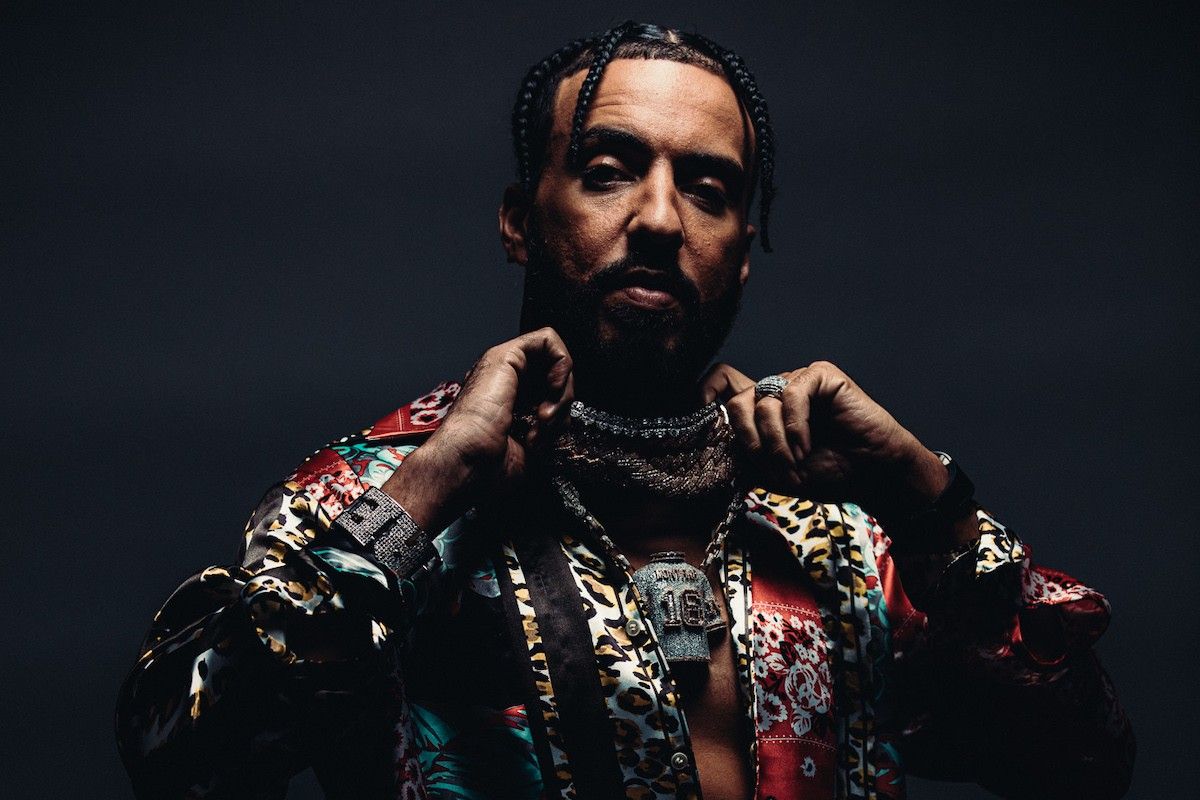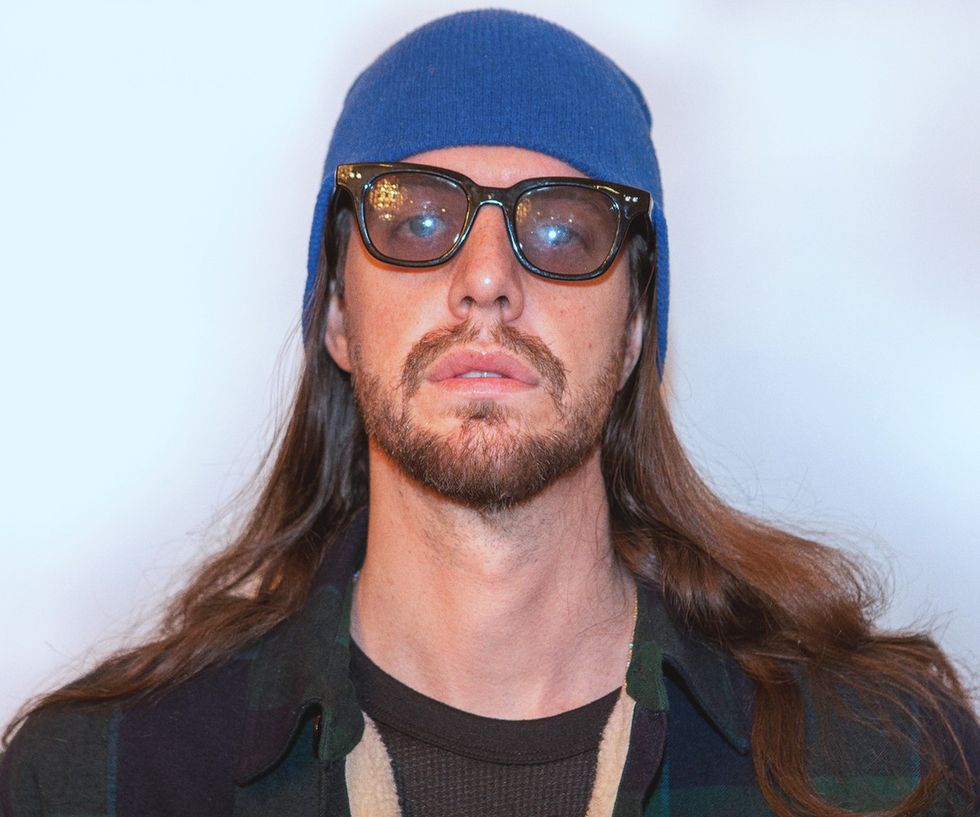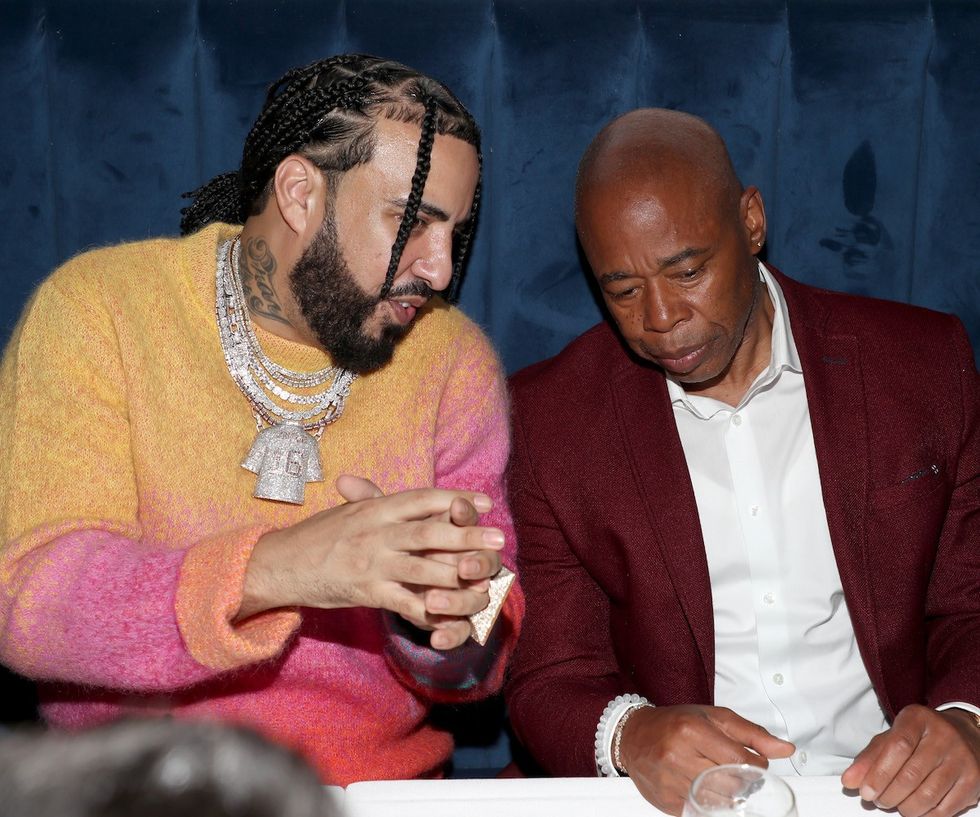
French Montana
French Montana's new album, Montega, is much more condensed than his previous effort. Credit: Nabil*
To continue reading
Create a free account or sign in to unlock more free articles.
By continuing, you agree to the Terms of Service and acknowledge our Privacy Policy
Register
The content is free, but you must be subscribed to Okayplayer to continue reading.
THANK YOU FOR SUBSCRIBING
Join our newsletter family to stay tapped into the latest in Hip Hop culture!
Login
To continue reading login to your account.
Forgot your password?
Please enter the email address you use for your account so we can send you a link to reset your password:

Over the course of hip-hop’s 40-year history, the come-up for a plethora of successful MCs has been locking in with one producer to craft their sound. Think about the scope from Prodigy and Havoc to Missy Elliot and Timbaland. These rappers along with others would eventually venture out and work with other producers to expand but when they and their audience had that craving for something purer they’d always make their way back to old faithful.
A new odd couple formed this type of bond in the early 2010s when French Montana and Harry Fraud sonically collided bringing what would be a more modern type of New York sound to the masses. Under the tutelage of wave god and fellow NY-bred MC Max B, French would bring his laid-back yet punchy bars to Fraud’s family rock band mixed with Brooklyn sample groove-influenced soundscapes. At a time when the Atlanta trap sound was front and center, the duo found a new New York way to infiltrate airwaves.
A slew of successful mixtapes — the Mac & Cheese and Coke Boys series — would carry and expand their sound and cement a run from the duo from 2010 to 2012. The crowning jewel of this run would be the 2012 single “Shot Caller” which features a ringing trumpet sample from a 1979 Thomas Bell Orchestra cut. Fraud’s signature, shifting, shaking, and bouncing percussion beneath the horn would catch French’s nonchalant yet potent flex raps like a line drive into Jeter’s mit at Yankee Stadium. Along with the late rapper Chinx Drugz, French and Harry would propel themselves and their new Coke Boys wave to the individual corners of the industry they each wanted to occupy.
French would intentionally go more pop, expanding his sound to more top 40 reaching hits and Fraud would step back to a more indie route. His new focus led to producing more niche full projects for the likes of rappers from Curren$y to Action Bronson to Smoke DZA. Fraud would still get a few credits on any French major label album that would drop between then and now which would serve as necessary reminders of where the source of French’s artistry remained. In mid-2021, French was caught in a swirling Twitter-sphere dialogue culminating in rhetoric that downplayed his impact. The response was his 2021 album They Got Amnesia which, at 21 tracks, attempted to tackle the breadth of his ability. It contains a slew of mainstream-leaning pop-rap songs with major guest appearances as well as another heavy set of street-leaning anthemic slaps. It seemed French wanted to reintroduce himself as a diverse hitmaker.
In retrospect, this feels like more of a lob pass whereas his new collab album Montega with Fraud (out at midnight) windmill dunks the reminder of the sound he and his partner on the boards created. At a much more condensed and focused 12 songs, re-instilling Fraud back into the mix has naturally led French to cut all the fat. He needed to throw a jam-packed album in the internet’s face to come back home to where he’s most comfortable and appealing.
We spoke to the one-two punch about this decade-plus long journey back to their home base. We got a sense of how they found their way back to meet in the center of where they both ventured off, and how they want to serve you what came for with an updated style and finesse.

What is the French Montana sound with Harry Fraud?
Harry Fraud: I think the way I would describe it would be moving. Not moving in the tempo sense, something that moves you emotionally. That's with all my beats, but I think, particularly with French, we have these different chambers. An important one is the melancholy music that touches you. But then, French will come and say the hardest shit on top of it. I've always been drawn to artists that do that. I always think about Sean Price. You know, on Monkey Bars, there's a bunch of beautiful beats with voices swirling and all this stuff. But then Sean comes on and like, punches the whole thing in the fucking face. It's just like, “Whoa, this guy is saying the craziest shit over this beautiful soundscape.” I think French is really good at tapping into what is his most effective voice over those soundscapes. That’s one chamber. Then there’s one I call, “soulful pain.” An example of that would be the second song on the album, “Rushmore Pack.” It's this choir sample, and him coming in on top of it. A lot of artists, if you give them a beat like that, they kind of get lost in the sauce of the beat because the beat is doing so much around them. But French has this quality where he can always come on top and place his words in between the drums or the sample where they fit the right way. He's not afraid to let the sample do a little work, and breathe. I think that's something we learned from people like Jim (Jones) and Cam’ron growing up in New York City.
I want to throw one of your bars at you off the album that I feel like is kind of a culmination. “Chasing dollars, but the currency is time.” I wanted to talk about that ideology. The value of the time you’ve spent creating together.
French Montana: Man, I feel like God ain’t really want us to do a whole album together until me and him were in the best positions of our lives. The most independent where we are more in control of everything now. Everything happened at the right moment. That's where the currency comes in.
HF: One thing that French told me on our come-up that has stuck with me for the last 10 years is, “time don't wait for us.” That's an ideology that I've really taken to heart and employed in my entire life. French has always really understood that “Look man, we gotta go now.” We have this lightning in a bottle and we have to capture it and move.
So, French, the They Got Amnesia album was really a, “Y'all don't remember what I did and can do?” And then with this… Yeah, and now with this, it’s like, “Let me redirect you to the legacy and sound we built.” Is that how you thought about it?
FM: Yeah. And also I scratched off my bucket list everything that I wanted to accomplish. From going platinum on albums to going diamond. Now it’s back to how I want to finish my legacy with Harry Fraud how we started. How we made music, from the point of view of when we had our backs to the wall. When we would fight with music to get out of the rabbit hole, that's what we got with this. Now we’re making music to bring everybody back but take them where we're going at the same time.
On “Drive By” with Babyface Ray and on “Bricks and Bags” with Benny The Butcher and Jadakiss you rap about being in the game two decades plus and holding down the summer for a decade straight. How do you look at that legacy of summer music?
I dropped Cocaine City [DVD] in 2003. We in 2022, so two decades of the struggle. I went through every phase you can go through in a game. Me and Max B was doing our thing and then I met Harry Fraud and it was kind of a special moment. We made the best music we ever made from “New York Minute” to “Go Hard” to “Playing in the Wind,” street platinum records that we did. Ever since then I just feel like, there's a certain time, we come every year.
Harry, your first time working with French on something was pretty wild.
HF: I was mixing a song that French was featured on for another artist I was working with at that time, but we hadn't actually met. At that time, in the building that the studio was in Chinatown, there was a bootleg factory at the bottom. They were making fake Louis Vuitton and all that stuff. It got raided and it was the biggest raid of bootleg goods in New York City history. We had just built the studio with — rest in peace to my brother — Andreas Costa, and another one of my friends, Brian Holliday, and we literally had to drop everything. Then we had to move to a warehouse building in Dumbo, Brooklyn, which was not developed yet. That's when French pulled up on me at that time in that building. I'll never forget he pulled up on me and I brought him to the parking lot. French and everybody at that time was doing what they were doing in the streets still, one foot in one foot out. But we were walking down this dead-end alley. He looks at me and says, “Don't ever walk me down this alley again, I'm pulling up right in front of the studio from now on.” He said it was a sketchy little zone where an ambush could happen. So from then on, for the next two years, he would pull up the white Escalade in front of the studio and leave it right at the fire hydrant. Dumbo was so dead that he never got a ticket because no cops were coming. There were no ticket people in Dumbo, it was just a dead area. That studio in Dumbo was where we sharpened each other's skills. We were scratching to pay our rent.
So then once you're in that studio what are your memories of either the first song you made? Or the first moment where you really felt that chemistry between the two of you?
FM: It was “Why So Serious.” I remember I was watching a movie and I found that sample and I came to Harry Fraud’s studio and I played him the sample. I said, “Put some drums behind his brother.” It was around Halloween time and we put it out. I went and shot the video and put the Joker mask on and everything.
HF: It was special to me because that was the first time I had something that I worked on on Worldstar Hip-Hop.
Harry told me y'all have sample battles. What kind of samples do you look for to bring to Harry for your sounds?
FM: I mean, just ones to capture my soul man. I don't have a certain science to it, or lectures I could say about it. It's just when I get a certain feeling. I just know that whoever's listening to it, definitely gonna feel the same way. It's gonna hit them.

How was it having the mayor of New York come to your listening party?
Coke Boys stands for “creation of kings everywhere.” We've been leading by example, and just trying to help the youth since we started. So I guess he sees the projection of everything that we've been doing. He sees how much we've been helping and he came to support the movement because, you know, we are each other’s mirrors. He represents us in one way and we represent the youth in one way. If we come together, we can save a lot of lives because a lot of the kids are lost out here in the city. If that's what it takes, for us to make sure that everybody is straight, this is gonna end up happening. But you know, we are the first artists ever to have the mayor come to a listening party. That's a fact. That's cool.
You balance a lot of legacy voices on this project with new voices. Did you think about that a lot with having people like Babyface Ray and EST Gee but also having people like Rick Ross, Benny, and Jadakiss?
Yeah, of course, man. Me and Kiss have been working together since he was the first big feature I've ever had. Since we brought everything back full circle, I felt like it was only right to get him involved. Ross is legendary. From “Off the Boat” to “Stay Schemin” to “Pop That” he has been part of my biggest records. With Benny, I felt like the streets are gonna appreciate that. And you know, there's no Coke Boys without Chinx. EST Gee and Baby Face I'm a big fan of. They bring something young and new but they fit the sound.
Was it all created within the time between They Got Amnesia to now? And were you both able to really lock in in person at a studio space for this?
HF: This album has been the last seven or eight months, so almost a year. French was on the West Coast for a lot of it. I was on the East Coast. But me and French we're constantly in communication and sharing our thoughts. So French was recording a lot of his stuff at his house and I was working on a lot of the beats at my own setup. Then when it was time for us to finalize things and really figure out what the album would be, we met up at my studio in Brooklyn. That was great too because we were in the home base, the original booth. We have the painting of Chinx on the wall in my studio and that is so important to me because it always feels like he's watching over us. And it was just me and him in the room hashing it out in a very positive way. There's certain albums when you're making them and it gives you that feeling. This was that for me.
Another thing that also stuck out to me about this album, and you say it a few times French like on “Blue Chills” “give a fuck about them diamond plaques” is it feels like a completed body of work without the necessity to push a mainstream type of single. Is that fair to say?
FM: This is the project where we did not think about nothing like “We're gonna make this record for the Go-Go dancers” or whatever. We just went in there and we did what we knew, we stripped ourselves from everything else. We went back to the essence like Nike going back to Air Force, just like, going back to the main dish.
This is going to McDonald's to get a Big Mac. This is going to Burger King to get a Whopper. This is going to the Chinese store for chicken wings and fried rice... Going to the Bronx for chopped cheese, going to City Island for lobster, going to Del Frisco’s for steak, going to the Italian pizza store to get a pizza. Not to get everything, just that main dish. This is what you know, this is what you want, and this is what you came here for.
Last thing, what's the biggest thing you've learned from each other musically over this whole period of time?
HF: I've learned so much, but French has always taught me to keep an open mind and to not overthink. He's always shown me that the initial feeling is the most important thing, and to preserve that feeling. If you can carry that feeling that sparked you to make the record into the final product of the record, then that's going to carry over to the people when they hear it.
FM: I think the number one thing is that we’re still learning every time we work on something. Fraud, he's just always tryna perfect everything. He might spend more time mixing the record than for me to record it.
Also, with time music changes. Back in the day, we would triple stack the vocals and now it’s that one lead vocal to serve the same effect. As the music has grown, we've grown with it. Not a day goes by that we don't learn from making the music, and honestly, we just learned that there's better samples out there. As much as we think we’ve covered there’s still an ocean full of samples for me and him to argue about which one is better. With me and him when it comes to finding samples that's a real passion.
__
Miki Hellerbach is a freelance music and culture journalist from Baltimore, whose work can also be found on CentralSauce, Euphoria Magazine, Notion Magazine, GUAP Magazine, and Complex. He also regularly co-hosts the In Search of Sauce music journalism podcast highlighting the top tier work of other writers.